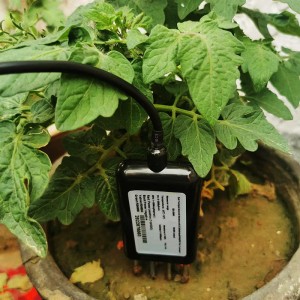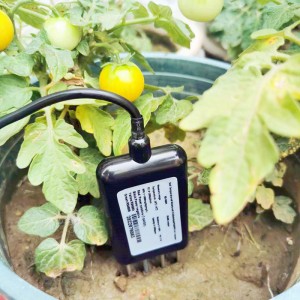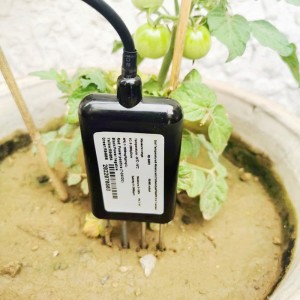In the context of coping with increasingly severe climate change and improving agricultural productivity, the Philippines is actively introducing soil sensor technology. The application of this technology is promoting agricultural modernization, enabling farmers to manage soil and crop health more scientifically, thereby increasing yields and economic benefits.
Soil sensors can monitor soil moisture, temperature, pH and nutrient content in real time. This data not only helps farmers understand the health of the soil, but also guides them to make more precise decisions in agricultural management such as fertilization and irrigation. For example, sensors can show when the soil needs watering, thereby avoiding waste caused by overwatering, while also reducing the labor intensity of farmers.
A popular Filipino farmer, Amos Kalan, said in an interview: “After the introduction of soil sensors, our farm management has become more efficient. We can adjust fertilization and irrigation according to actual conditions, and crop yields have increased by 20%.” His experience has also inspired surrounding farmers to try this new technology.
The Philippine Department of Agriculture has expressed active support for this technology and plans to promote the use of soil sensors nationwide. The government has introduced a number of subsidy policies to encourage farmers to purchase and use these smart devices. At the same time, the agricultural department also provides technical training to help farmers master the use of soil sensors and give full play to their benefits.
A spokesperson for the Ministry of Agriculture said: “Improving agricultural productivity through scientific and technological means is our current important goal. Soil sensor technology will provide farmers with more accurate data support and help the sustainable development of the entire agricultural system.”
The widespread use of soil sensors has not only increased agricultural output, but also played a positive role in environmental protection. Scientific irrigation and fertilization methods reduce the waste of fertilizers and water resources and help protect the ecological health of the soil. This move is in line with the international community’s requirements for sustainable agriculture, and has enabled the Philippines to take an important step in responding to climate change and reducing the use of pesticides and fertilizers.
Soil sensor technology is changing the way agriculture is produced in the Philippines and improving farmers’ production efficiency and income. With the support of the government and scientific research institutions, more farmers will be able to use this high-tech means to achieve more sustainable and efficient agricultural development in the future.
For more soli sensor information,
please contact Honde Technology Co., LTD.
Email: info@hondetech.com
Company website: www.hondetechco.com
Post time: Nov-25-2024




